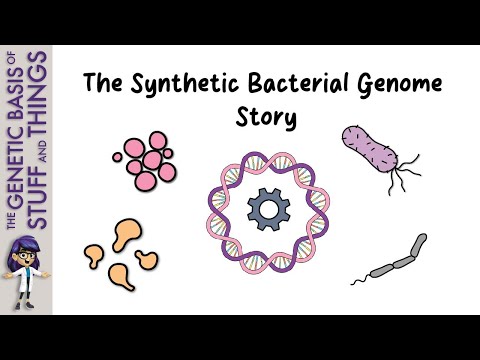As if sequencing a full human genome wasn’t tricky enough, scientists are now attempting to reconstruct our species’ genetic material from the ground up.
It’s an ambitious and controversial project called the Synthetic Human Genome (SynHG) project, and work has already begun on a proof-of-concept.
The goal of this crucial first step is to use the human genome blueprint to write the genetic code for a single, enormously long strand of DNA in just one of our chromosomes – making up approximately 2 percent of our total genome.
The entire DNA content will be digitally designed before it is then built in the lab.
According to proponents, this project could kickstart a genetic revolution, profoundly changing our understanding of human DNA and possibly enabling designer cell-based therapies and virus-resistant tissue transplantation.
Related: Scientists Just Achieved a Major Milestone in Creating Synthetic Life
Emboldened by these futuristic possibilities, the Wellcome Trust – one of the world’s largest scientific research charities – announced this week that it was funding the SynHG initiative with £10 million (approximately US$13.7 million).
Researchers behind the project, who hail from the Universities of Oxford, Kent, Manchester, Cambridge, and Imperial College London, told the BBC that “the sky is the limit”. They aim to build a fully synthetic human chromosome in the next five to 10 years.
“The ability to synthesize large genomes, including genomes for human cells, may transform our understanding of genome biology and profoundly alter the horizons of biotechnology and medicine,” says project leader and molecular biologist Jason Chin from the Ellison Institute of Technology and Oxford.
“With SynHG we are building the tools to make large genome synthesis a reality.”
Some independent scientists, however, are dubious that the SynHG project can get that far, even with cutting-edge generative AI and advanced robotic assembly technologies.
Award-winning geneticist Robin Lovell-Badge from the Francis Crick Institute, who is not involved in the SynHG project, says that he is “very enthusiastic” about the initiative, as “you can only truly understand something if you can build it from scratch.”
But despite all the knowledge we have gained since fully sequencing and reading the human genome in 2003, he says there is still a lot of work to be done before we can actually build a complete one.
Today, the only human-made genomes fully written from scratch are for single-celled organisms that have, at most, 16 chromosomes made from roughly 12 million base pairs. That accomplishment took roughly a decade of hard work.
Humans, by comparison, typically possess more than 30 trillion cells with 46 chromosomes and 3 billion base pairs. Who knows how long it will take scientists to untangle that level of complexity?
 frameborder=”0″ allow=”accelerometer; autoplay; clipboard-write; encrypted-media; gyroscope; picture-in-picture; web-share” referrerpolicy=”strict-origin-when-cross-origin” allowfullscreen>
frameborder=”0″ allow=”accelerometer; autoplay; clipboard-write; encrypted-media; gyroscope; picture-in-picture; web-share” referrerpolicy=”strict-origin-when-cross-origin” allowfullscreen>“As for synthetic human chromosomes, although the current project is very unlikely to get that far, it may eventually be possible to make synthetic cells that can be grown in the lab with high efficiency,” says Lovell-Badge.
“However, there is no suggestion to make synthetic humans. We have no idea how to do this, and it is likely to be very unsafe.”
While the details are hazy, the SynHG team claims to be working with academic, civil society, industry, and policy experts to examine the ethical, legal, and social implications of their research.
Projects like these are bound to inspire social and ethical debates on the possibilities and consequences of complex health and reproductive issues, from the right to make ‘designer’ babies to the definition of eugenics.
“We must recognize that this sort of work is not without controversy, and that is vital for researchers and the public to be in communication with one another,” says Sarah Norcross, director of the Progress Educational Trust (PET), which is a charity for people affected by genetic conditions.
“The public must have a clear understanding of what this research entails, while researchers and funders must have a thoroughgoing understanding of where the public wants to go with this science.”
